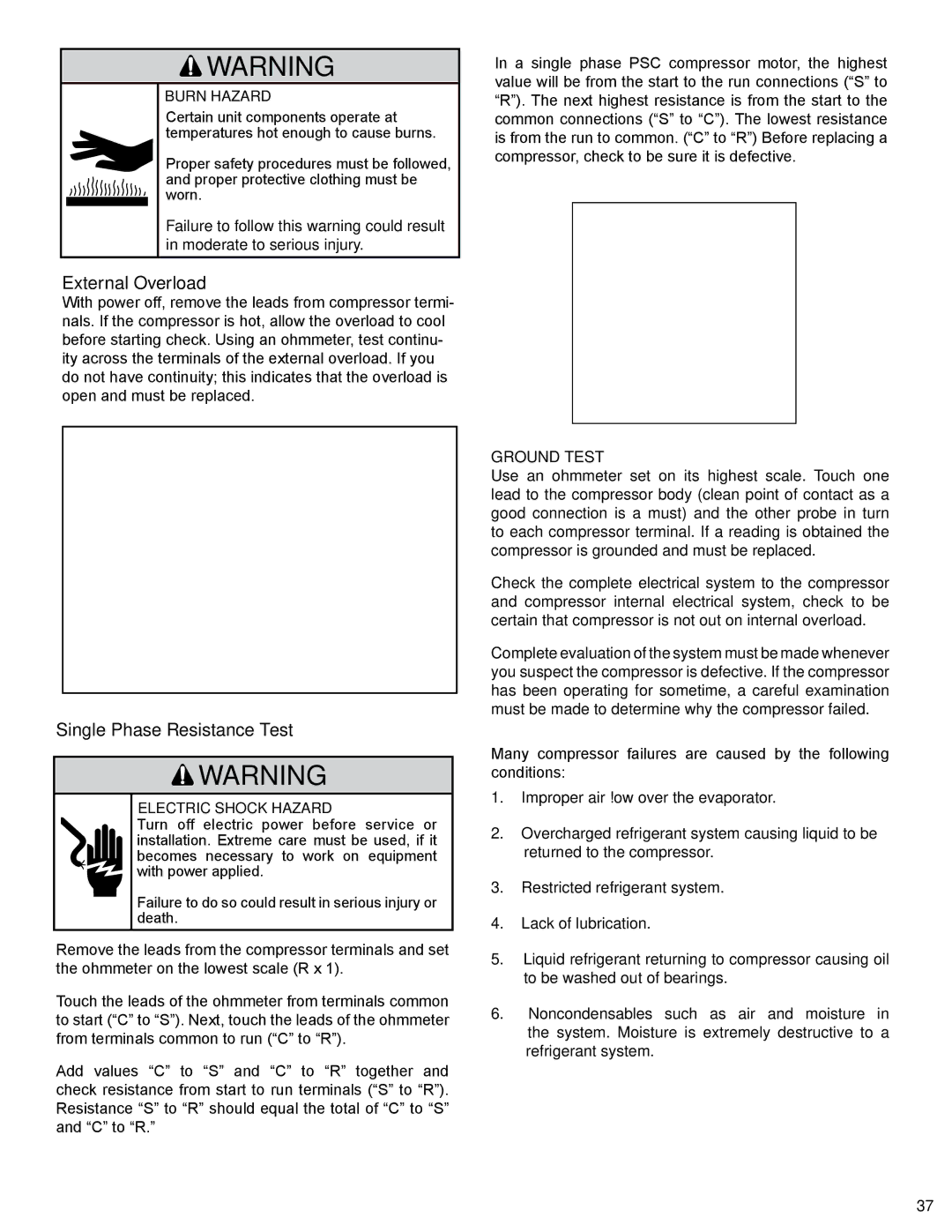
![]() WARNING
WARNING
BURN HAZARD
Certain unit components operate at temperatures hot enough to cause burns.
Proper safety procedures must be followed, and proper protective clothing must be worn.
Failure to follow this warning could result in moderate to serious injury.
External Overload
With power off, remove the leads from compressor termi- nals. If the compressor is hot, allow the overload to cool before starting check. Using an ohmmeter, test continu- ity across the terminals of the external overload. If you do not have continuity; this indicates that the overload is open and must be replaced.
Single Phase Resistance Test
![]() WARNING
WARNING
ELECTRIC SHOCK HAZARD
Turn off electric power before service or installation. Extreme care must be used, if it becomes necessary to work on equipment with power applied.
Failure to do so could result in serious injury or death.
Remove the leads from the compressor terminals and set the ohmmeter on the lowest scale (R x 1).
Touch the leads of the ohmmeter from terminals common to start (“C” to “S”). Next, touch the leads of the ohmmeter from terminals common to run (“C” to “R”).
Add values “C” to “S” and “C” to “R” together and check resistance from start to run terminals (“S” to “R”). Resistance “S” to “R” should equal the total of “C” to “S” and “C” to “R.”
In a single phase PSC compressor motor, the highest value will be from the start to the run connections (“S” to “R”). The next highest resistance is from the start to the common connections (“S” to “C”). The lowest resistance is from the run to common. (“C” to “R”) Before replacing a compressor, check to be sure it is defective.
GROUND TEST
Use an ohmmeter set on its highest scale. Touch one lead to the compressor body (clean point of contact as a good connection is a must) and the other probe in turn to each compressor terminal. If a reading is obtained the compressor is grounded and must be replaced.
Check the complete electrical system to the compressor and compressor internal electrical system, check to be certain that compressor is not out on internal overload.
Complete evaluation of the system must be made whenever you suspect the compressor is defective. If the compressor has been operating for sometime, a careful examination must be made to determine why the compressor failed.
Many compressor failures are caused by the following conditions:
1.Improper air fl ow over the evaporator.
2.Overcharged refrigerant system causing liquid to be returned to the compressor.
3.Restricted refrigerant system.
4.Lack of lubrication.
5.Liquid refrigerant returning to compressor causing oil to be washed out of bearings.
6.Noncondensables such as air and moisture in the system. Moisture is extremely destructive to a refrigerant system.
37
